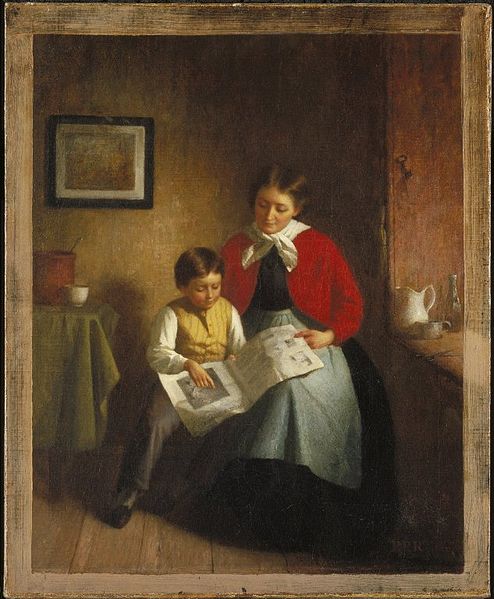
Most academic journals can be found online where they can be read or printed out. Students and ajarns alike appreciate that e-journals can be consulted 24/7 and not just during hours when the Thammasat University Libraries are open. Likewise, if there are any technical problems with accessing an e-journal, each publisher website should have a help desk where immediate advice and assistance are available, even late at night and on holidays. Naturally, when the libraries are open, our librarians are happy to assist with any such problems, for readers who can wait for a resolution. Sometimes there are issues with individual browsers that prevent readers from accessing articles. For example, if a reader empties the cookies from a browser by going to the TOOLS/ OPTIONS/ PRIVACY tabs, removing the stored cookies, and reopening the browser, this may solve some issues of accessing certain e-journals. Another problem that occurs is if a reader or someone else using a shared computer is security conscious and has set a computer to not accept all cookies, including third part cookies. By removing this type of security condition and setting the browser to accept all cookies, including third party ones, access to e-journals can be made easier. This type of technical advice is available 24/7 from help desks of publishers, whose job it is to make sure that institutions subscribing to their publications have ready access to the material.
Advantages of e-journals.
Unlike readers of printed academic journals, online readers can use search functions for all kinds of information that makes research less time-consuming and more efficient. The TU Libraries subscribe to a large number of e-journals in many fields, and starting from the library homepage, ajarns and students may do a search to find material of interest. The host, or organization putting articles online, whether EBSCOhost, JSTOR, Project MUSE, or many others, all have slightly different ways of presenting material, but all offer fairly clear directions about what each reader should do in order to obtain material. These e-journal articles may be consulted on-campus. In order to read them off-campus, it is necessary to arrange to use a proxy server, and each TU faculty should be able to assist readers to make this possible.

Keeping up to date.
In many fields, it is useful to know about the latest publications in each subject. Readers who want such alerts can subscribe for them from EBSCO databases. As an EBSCO support webpage indicates:
Journal Alerts save valuable research time, and can be set up to provide automatic e-mail notification whenever a new issue of a particular journal becomes available in the EBSCO interface you are using. Note: To create an alert, you must log in to My EBSCOhost to create a search alert. If you do not log in prior to setting up a Journal Alert you will be prompted to do so. If you do not have a My EBSCOhost personal folder, you can set one up by clicking on I’m a new user. It is free and signing up is quick and easy.
Whereas in earlier times, specialists in any field would have to receive a magazine and take the time to read it in order to be informed if anything new had happened in a field of interest, today the information can go directly to the ajarn or student, spreading the findings much more quickly. Often publishers provide this type of alerting subscription, announced on their homepages. To receive them, it may be necessary to open a free personal account.
E-journal rules.
When the TU Libraries subscribes to any e-journal, publisher contracts make it clear what is allowed and what is not. For example, TU students, ajarns, and staff may print or download an e-journal article for research, teaching, or private study. They may also send a copy of an article to another student, ajarn, or staff member. These are all permitted as personal use of the database by subscribers. Publishers routinely do not allow anything that is not personal use, but appears to be a commercial venture using their materials to set up a business competitor. So, users are usually not permitted to download or copy entire e-books, remove copyright notices or text from e-journal article, use e-journals for commercial purposes, make many printed or e-copies of e-journal articles, download or save entire issues of an e-journal, send e-journal articles to people who are not TU students, ajarns, or staff by email attachment or sharing passwords. Posting e-journal articles on Facebook, other social media, or learning network, is also not permitted. Any reader who is in doubt about what is or is not allowed may easily consult the license terms for each journal, listed on each provider website. If any questions remain, readers may always ask a TU librarian for advice and assistance.
Journal abbreviations.
Readers may need to look up a reference but the abbreviation of a journal’s name is not clear. Fortunately, by Googling the words journal abbreviations, many lists can be found explaining the full titles for such abbreviations. Some of the websites that will help are organized by category of publications. For chemistry and biology, CASSI from Chemical Abstracts Service has a full list. As its website explains:
The CAS Source Index (CASSI) Search Tool is an online resource intended to support researchers and librarians who need accurate bibliographic information. This complimentary resource can be used to quickly and easily look up or confirm publication titles and abbreviations, as well as CODEN, ISBN, or ISSN codes. The CASSI database contains a listing of publications indexed by Chemical Abstracts Service (CAS) since 1907.

Since there is a maximum of 50 results for each search, it helps to be as specific as possible about what you are looking for when you enter terms in the search engine. Readers who are not scientists may find full journal titles on Genamics JournalSeek, which lists around 100,000 academic publications. As its site states:
Genamics JournalSeek is the largest completely categorized database of freely available journal information available on the internet. The database presently contains 104166 titles. Journal information includes the description (aims and scope), journal abbreviation, journal homepage link, subject category and ISSN. Searching this information allows the rapid identification of potential journals to publish your research in, as well as allow you to find new journals of interest to your field.
A list of Biological Journals and Abbreviations may also help. For law journals, the Cardiff Index to Legal Abbreviations is authoritative. As its site notes:
This database allows you to search for the meaning of abbreviations for English language legal publications, from the British Isles, the Commonwealth and the United States, including those covering international and comparative law. A wide selection of major foreign language law publications is also included. Publications from over 295 jurisdictions are featured in the Index. The database mainly covers law reports and law periodicals but some other legal publications are also included. The Index is under continuous development with new abbreviations and titles being added on a regular basis.
There are many other such helpful search engines categorized by medicine and other fields of study. These sites are also helpful if the researcher knows a full title of an e-journal but needs to know the standard abbreviation, in order to cite it in a bibliography, for example. Such websites as Journal Abbreviation Sources (All that JAS) can help with titles of journals in languages other than English. All that JAS includes journal titles for such fields of study as agriculture, anthropology, aquatic sciences, astronomy, biosciences, business and economics, chemistry, computer science, engineering, environmental sciences, food science, geology, history, law, materials science, mathematics, medicine, philosophy, physics, religion, and veterinary medicine. WorldCat can also be a good source for full journal titles, although it does not list abbreviations. As always, if all these search possibilities do not help, and problems still exist, TU librarians are happy to assist in resolving the issue.

(All images courtesy of Wikimedia Commons).
